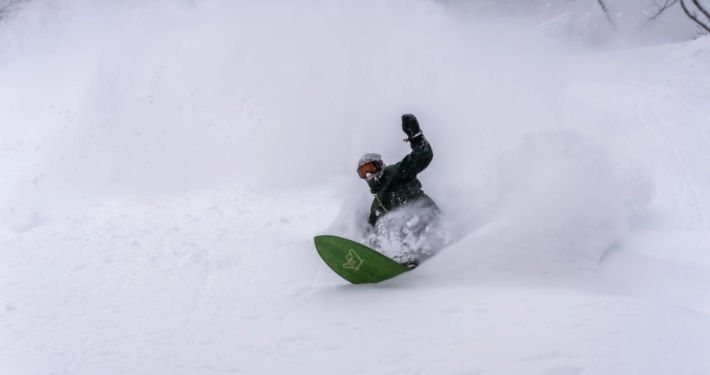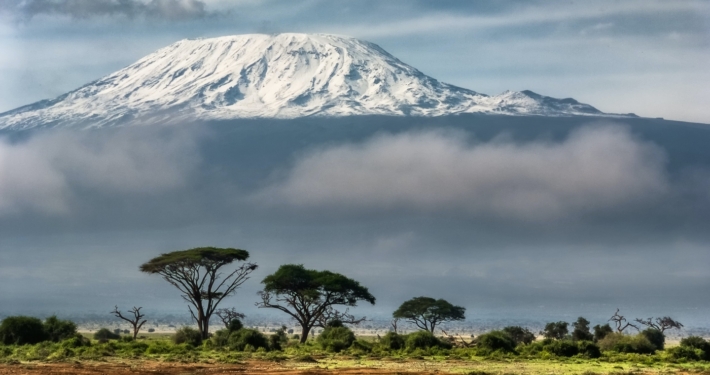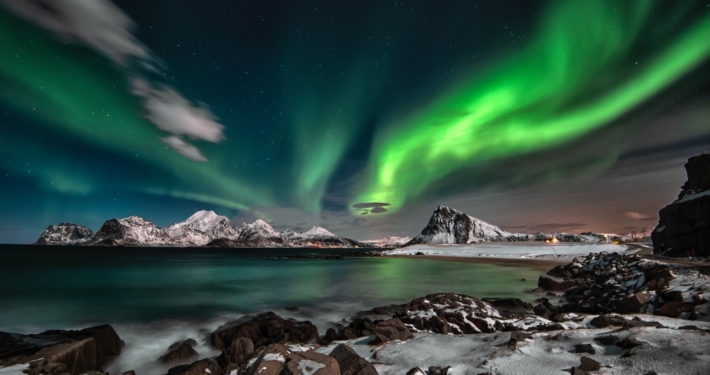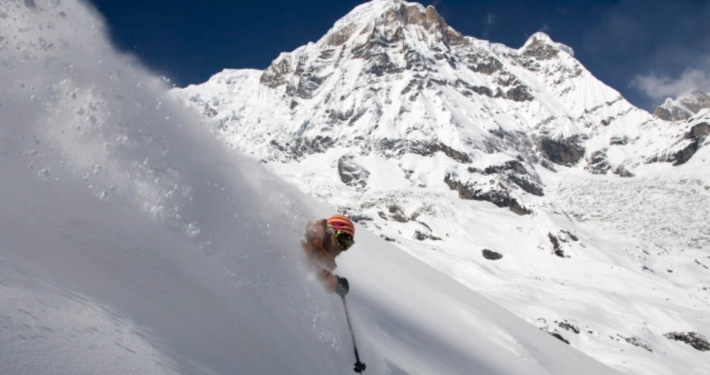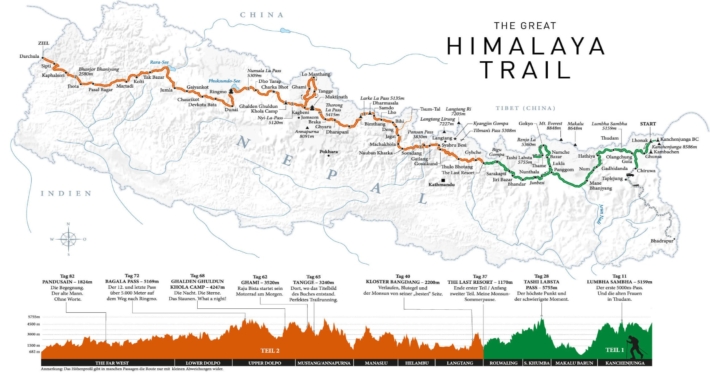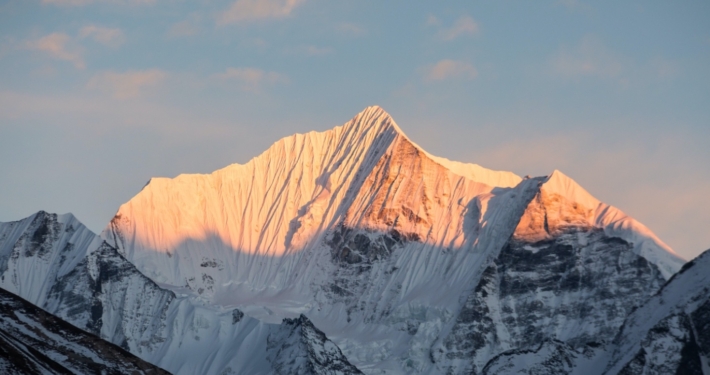Improve your ski technique following the advice of Jordi Tosas and Inka Bellés. Discover all the details of the material and maintenance for your skis with Toti Bes.
KEY POINTS
WHAT YOU WILL LEARN
COURSE DESCRIPTION
We focus on all the must-have progression techniques and tricks. You will learn the most appropriate movements and body positions to optimize energy and progress quickly in ski mountaineering.
In addition, you will master the progression on the flat, uphill and in complicated snow. Also all the techniques of turning and changing skins, from the most conventional to very specific techniques for transitions on slopes and in competition.
We will analyze the basic concepts to draw a route safely avoiding the most common mistakes.
This course is part of the course pack:
–Mountaineering Pack – All winter mountain
Get the whole pack at the best price with all the essential knowledge of alpinism and winter mountaineering.
WHO IS IT AIMED AT?
This course is aimed at all those mountaineers who want to start or validate knowledge of ski mountaineering. For all those who know that by learning a few quality technical details explained by professionals, they will get the basic tools to start or progress quickly in this exciting sport.
This course is not for learning to ski, we will develop this in other courses.
Ski mountaineering basics
| 1 |  |
INTRODUCTION to ski mountaineering, what will you find in this course?Here you will find all the basic techniques so that you can perform the different ski mountaineering progression techniques in the most correct way and with the greatest possible efficiency. |
2 min. |
| 2 |  |
WHAT YOU SHOULD KNOW before starting SKIMOUnderstanding where we are moving and the limitations of this course is essential to avoid accidents. The snowy mountain is a hostile terrain, knowing how to ski is not enough |
3 min. |
| 3 |  |
How to properly put on SEAL SKINSWhat types of leather are there and which are the most suitable for each use. How to avoid mistakes when placing the skins once or several times |
5 min. |
| 4 |  |
How to REMOVE seal skinsHow to easily remove and fold the skins in any weather situation. The first step to not have problems on the next climb. |
2 min. |
| 5 |  |
Solve 4 PROBLEMS, seal skinsLet’s avoid the most common problems: clogs, lack of grip… and bring the minimum material to get you out of one of the most common troubles in ski touring |
2 min. |
| 6 |  |
How to AVOID CLOGS under furSome tricks to avoid the most common problems: clogs on the skins and minimize their weight. |
3 min. |
| 7 |  |
INSTALL FIXINGS easilyThe light bindings are great, they weigh much less than the old bindings. They only have one problem, until you get the hang of it, it takes a bit for the two pins to fit into the holes in the boot. |
4 minutes |
| 8 |  |
How to ATTACH ski polesHow to use the leashes of the ski poles. They are very helpful but depending on the situation it is better not to use them for safety, we will see when. |
3 min. |
| 9 |  |
TECHNIQUE and correct MOVEMENTS in ski mountaineeringThe basis of all climbing movements is learned on the flat. Controlling this technique correctly we will be able to control the entire base of the progression on the ascent. |
5 min. |
| 10 |  |
SKIMO TECHNIQUE UPRISINGThere are many types of climbs, we are going to see the correct general technique. All the details of the flat progression technique applied to the climbs. |
2 min. |
| 11 |  |
Skiing in DEEP SNOWWe are going to look at how to face the climb in the least tiring way possible before the big descent. The most suitable techniques for deep snow |
4 minutes |
| 12 |  |
Skimo difficult terrain progression: NON-COHESIVE SNOWThe most appropriate techniques for difficult snow: non-cohesive snow is the one that slides when you step on it due to its lack of consistency. |
2 min. |
| 13 |  |
Difficult terrain skimo progression: HARD SNOWThe most appropriate techniques for difficult snow: hard snow. Climbing on hard snow carries the added risk of a potential fall. |
3 min. |
| 14 |  |
BASIC TURN in ski mountaineeringIn the turns, a lot of energy is consumed if they are not done correctly, a correct and accurate technique is essential to reach higher and further. |
2 min. |
| 15 |  |
How to do the MARY TOURThe maria turn or convergence is the most common turn to do in a ski mountaineering climb. It is a much more technical move than most realize. |
4 minutes |
| 16 |  |
Tour Maria ALTERNATIVE with FREERIDE skis.The main problem when riding long or heavy skis is that turning is tiring. They are simply not performing the turn correctly. |
2 min. |
| 17 |  |
Vuelta María in DEEP SNOWWhen we have to dig a trench because we have a pack of snow that has just fallen, the uphill turns can be more exhausting than the pleasure we are waiting for to come downhill. |
3 min. |
| 18 |  |
Remove SEAL SKIN, steps to followThe correct technique to remove seal skins detailed step by step. The first temptation when reaching the top is to take off our skis and calmly remove the skins, but there is another, much more efficient way to make this change. |
3 min. |
| 19 |  |
REMOVING sealskin from BEHIND on normal skisIf you think that fast skin changes are not possible for your touring skis, you are wrong. |
3 min. |
| 20 |  |
FAST and COMPETITION change in SKIMOThe most efficient skin change is the competition one, learn all the steps in detail. |
2 min. |
| 21 |  |
REMOVE mountain skis on a steep SLOPEAll the steps to take off your skis and put on crampons safely in exposed places. |
6 min. |
| 22 |  |
PLACE mountain skis on a steep SLOPE.All the steps to put on your skis safely in exposed places. |
6 min. |
| 23 |  |
How to PLACE skis in BACKPACKThe different techniques and details to store the skis depending on the situation in which we find ourselves: The competition system is the fastest both to store and to remove the skis from the backpack. |
2 min. |
| 24 |  |
STORE skis in a BACKPACK, other TECHNIQUESThere is a technique that allows us to store and remove the skis in any backpack faster than with competition material, we are going to explain the technique and see what limitations it has in terms of comfort. |
4 minutes |
| 25 |  |
How to CHOOSE the best ITINERARY in ski mountaineeringChoosing the most appropriate route is an art, you have to follow some basic concepts and then practice and practice. |
3 min. |
| 26 |  |
Skimo in SKI RESORTSThe advantages and risks of skimo in ski resorts. The stations are a fully controlled place without the intrinsic risks of the mountain, such as avalanches. |
2 min. |
| 27 |  |
DANGERS in ski mountaineering: TREESAvoid terrain traps: how to draw near trees to avoid accidents and avalanches |
2 min. |
| 28 |  |
DANGERS in ski mountaineering: ROCKSAvoid terrain traps: how to draw near rocks to avoid accidents and avalanches |
3 min. |
| 29 |  |
How to go in a GROUP in Ski MountaineeringProgressing correctly in a group is the difference between increasing safety at the start and disaster. |
2 min. |
| 30 |  |
TEST, validates everything learnedEvaluate for yourself if you have correctly understood all the theory |
10 min. |
Ski maintenance
| 1 |  |
How to REPAIR Ski soleThe more you slide, the less you get tired. Discover how to repair the sole of skis. |
3 min. |
| 2 |  |
How to FILE ski edgesDiscover how to file the 2 edges of the skis. Will a file suffice? |
2 min. |
| 3 |  |
How to WAX skisFind the materials and steps to follow to correctly wax the skis. Take into account the pores in the sole of the skis. |
6 min. |
| 4 |  |
SEAL SKINS, what should I knowFind out what types of seal skins there are and which is the most optimal for your skis. |
5 min. |
| 5 |  |
Seal skins, TAIL changeDiscover how to change the tail of the seal skins. |
2 min. |
| 6 |  |
AVOID snow CLOGS on skisDrip the wax on the skin and pass the iron so that it is very liquid. |
3 min. |
| 7 |  |
Ski MAINTENANCE, more considerationsAvoid ski wear with good maintenance. |
3 min. |
ski equipment
| 1 |  |
What ski mountaineering pole do I NEED?There are several types of poles for ski mountaineering. It is not that some are better than others, it is that depending on your technique, the type of activity that you are going to do… |
4 minutes |
| 2 |  |
Types of DRAGONERAS for ski mountaineeringWe help each other push the poles with the leash. But there are different types and we have to look at which one best suits our needs. |
5 min. |
| 3 |  |
Types of TOES in sticks according to the snow.If we usually go through an area with deep snow, it has nothing to do with going up a ski resort with hard snow. |
3 min. |
| 4 |  |
Types of MATERIAL in STICKSThe material of our ski touring poles has important implications. |
2 min. |
| 5 |  |
The size of the canesWe are going to explain three different techniques to decide what size of ski mountaineering poles to choose. |
3 min. |
| 6 |  |
Parts of the bindingsTo correctly choose the type of binding that best suits your type of ski, it is essential to first understand all the parts of the different bindings. |
4 minutes |
| 7 |  |
Strength in fixingsMost of the ski mountaineering bindings allow you to regulate the force of the binding so that they jump when we fall. |
1 min. |
| 8 |  |
Competition bindingsWe detail all the parts and features that the different models of ski mountaineering competition bindings can offer. |
3 min. |
| 9 |  |
SPEED TOURING bindingsWe detail all the parts and features that the different models of SPEED TOURING ski mountaineering bindings can offer. |
2 min. |
| 10 |  |
TOURING bindingsWe detail all the parts and features that the different models of TOURING bindings can offer in ski mountaineering. |
3 min. |
| 11 |  |
Freeride bindingsWe detail all the parts and features offered by Freeride bindings. Find the details and technology that make them exclusive. |
4 minutes |
| 12 |  |
BIND skis or put BRAKES on skimo?Find the advantages and disadvantages of the 3 binding systems and choose whether to tie the skis or apply brakes. |
6 min. |
INSTRUCTORS AND COLLABORATORS
Our Staff is made up of professionals with proven experience that will pass on all their years of knowledge to you in a 100% flexible format.
We also rely on collaborators and commercial international brands to provide us with their technical knowledge.












